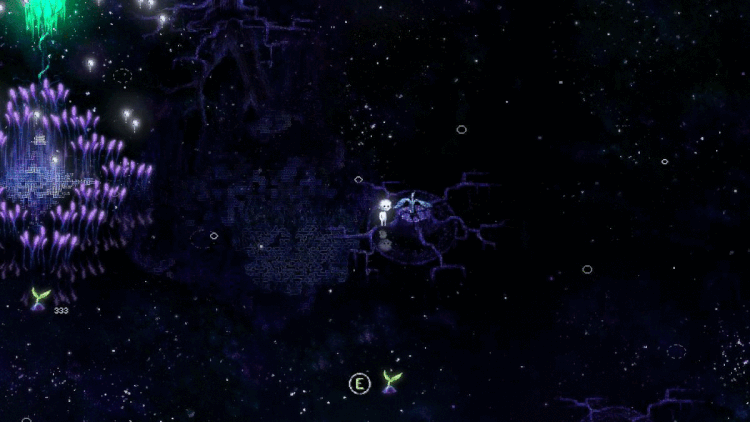gamingeek said:No music or speech? Eh.
Do you put on a CD in the background?
With KK songs.
SteelAttack said:gamingeek said:No music or speech? Eh.
Do you put on a CD in the background?
With KK songs.
GOTY

http://edge-online.com/features/review-machinarium

Format: Flash
Release: October 16
Publisher: Amanita Design
Developer: In-house
For a considerable time before Telltale Games applied the defibrillator, the point-and-click's arrhythmic life-signs were sustained only by a drip feed from the indie gaming scene. But though the output was plentiful, it was 90 per cent poison. Amanita Design can count itself among the few to engineer a powerful antidote to the torrent of room-escape puzzles and pedantic sequence-matching Hapland clones. And what was true of its earlier Samorost games is true of Machinarium: Amanita Design shows care and understanding of the genre, trimming away some of the tedious outmoded conventions which contemporaries on Newsgrounds and XBLA alike so doggedly follow.
It is also a beautiful game of vast visual imagination. While Samorost's world was a trippy palimpsest of macro-photographic manipulation, Machinarium's tale of robot rescue is depicted in scratchy pencils. The teetering towers of tin, pipes and pistons that make up the game’s eponymous city are drawn in such a haphazard, analogue medium that it purposefully declares itself apart from the touchstones of electronic entertainment. Character is effortlessly created, the story projected without a single word spoken or read – the robots communicate only in burbles, bleeps and yelps, their more complex motives efficiently and wittily described by animated thought bubbles. We soon discover that our battered tin can protagonist has been ejected from the city by a trio of black-hatted robo-thugs. The rest of the tale – a missing girlfriend, a dastardly plot – is driven through encounters with obsolete mechanical jazz musicians, clockwork churches and quizzical ventilation systems.
Though Machinarium’s setting makes the game brilliantly endearing, there remains the question of its pointing and clicking. In this area, Amanita Design is circumscribed by the limitations of the genre and the Flash engine itself, which usurps the right mouse button for a settings menu. But there are self-created problems too. It's sometimes a bore to cancel actions when started, and ever so slightly cumbersome to put selected inventory items away. Since your robot must be physically next to items before interaction is offered there is some fussy to-ing and fro-ing – but this is presumably in an effort to stop players solving puzzles by spamming the screen with clicks. In extremely rare moments, the game punishes you for exploration – taking an elevator to what transpires to be the wrong floor deposits you in the entrails of the city, forcing you to backtrack and perform several puzzles again.

But the puzzles themselves are nearly an unmitigated joy. The game keeps a prudent balance between logic and lateral thinking (and at one point mixes the two to ingenious end). Though the latter occasionally falls victim to hoary genre conceits – combining disparate inventory items in the fashion prescribed by the game designer – Machinarium makes advances by ensuring the inventory only contains a small selection of objects at all times. There are rarely many combinations and the game's most batty non sequiturs are deployed only in the smallest of enclosed spaces to limit the possibilities. The logic puzzles, meanwhile, are brainteasing minigames, mostly of some elegance and formidable challenge – but there is at least one disappointing occasion when the construction is provably flawed.
The point-and-click may stagger on, but its best years were in a time when the ambitions for interaction were hugely limited. The RPG has superseded its potential for storytelling and the dynamism of games like Scribblenauts threatens to send inventory-matching mechanics to the scrap heap. Whether the genre's return to consoles and computers is a resurgence or last hurrah, in Machinarium, Amanita Design has hammered together the parts that are in best working condition. With such crafty construction, Machinarium proves that there's life in the old ticker yet.
[8]


gamingeek said:
I don't know if I could play this with no brain.
Fixed. And yeah. 





Art style is amazing, very detailed and with a lot of stuff going on. Demo starts with you being dumped at the scrapyard, and your first priority being to assemble yourself a functional body, which will require you to solve a couple puzzles to get you in the mood. After that, you need to convince a guard to tel you through a bridge, and sneak your way inside the city, before the short demo ends.
There's no dialogue at all in the game, something familiar to people who have played Samorost and Samorost 2 before, all interaction is handled visually, with speech bubbles that have no text, only images. Music is almost non-existant as well, at least in the demo. Puzzles aren't really hard, which is saying a lot coming from me, and character design is aesthetically appealing and endearing.
Buy.